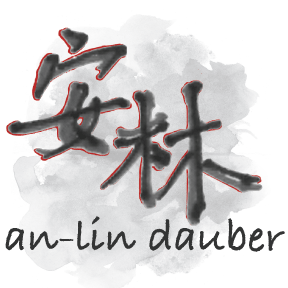Bio
An-lin Dauber (she/her) is a set and costume designer based in New York and Seattle. Off-Broadway/New York: Paul Swan is Dead and Gone; What You Are Now (The Civilians), By The Queen (Hudson Valley Shakespeare Festival), Letters That You Will Not Get (American Opera Project), H*tler’s Tasters; Great Novel (New Light Theater), Salesman 之死; June is the First Fall (Yangtze Repertory Company), Bulrusher; Passage (Juilliard). Seattle: Come From Away; Primary Trust; Metamorphoses; Little Women (Seattle Rep), The Tempest (Seattle Rep’s Public Works), Lehman Trilogy (ACT), The Sign in Sidney Brustein’s Window (Intiman & The Feast), Champagne + Sodomy: The Life and Crimes of Oscar Wilde; Amen Corner; Marisol; Blood Wedding; The Bar Plays: Small Craft Warnings and The Time of Your Life; A Bright Room Called Day (The Feast). Regional: A.R.T., Alliance Theater, Guthrie Theater, Huntington Theater Company, Hartford Stage Company, Oregon Shakespeare Festival, Yale Repertory Theater, St Louis Rep, Geva Theater, Milwaukee Rep, Dallas Theater Center, Utah Shakespeare Festival, Virginia Stage Company, Magic Theater, Mixed Blood Theater, Park Square Theater, Serenbe Playhouse, Passage Theatre, InterACT Theatre, Inis Nua, Theater Alaska. Film: Lolita Express (Houselight). Assistant Professor of Costume Design at the University of Washington. MFA Yale School of Drama. Proud member of USA 829.
Company member of The Feast — a nimble, artist driven ensemble theatre that prizes virtuosic artists working in extremes, pays those artists really well, and builds maximalist, collectivist, welcoming events.
Co-Creator of El Mentiroso — a 70-minute dance theater descent into the subconscious of a Fool who is desperate to extract the truth from a lie. This is an irreverent - mythological - game show - fever dream about intergenerational trauma and loss of innocence. Currently in development. Check out photos from our developmental workshop at Arts on Site in NYC!
Upcoming: Young Dragon (Seattle Children’s Theater), Inherit the Wind (Arena Stage), Tartuffe (Cleveland Play House)
Artist Statement
I am a visual storyteller: a set, costume, production designer. I envision and fabricate immersive environments that invite the performers and the audience to be collaborators in the space. I create sculptural environments and clothes that are intensely visceral, playful, and transformative.
A long-term question for me is how to make theater sustainable. I am interested in reused and salvaged materials, particularly “trash.” The materials and objects that we throw away tell stories about who we are as individuals and a society. Additionally, the majority of materials used in theater are sourced new and thrown out when no longer needed. I collaborate with shops to source re-used materials where possible and to explore processes of working so that materials can be stored and repurposed at the end of a show. My goal is to develop broader methods of sustainable theater making so that we can work towards a zero waste model.
As I continue to deepen my artistic collaborations, I gravitate towards collaborative and non-hierarchical working relationships, where design becomes an integral vehicle for storytelling and meaning-making. This is in contrast to a default (and still dominant) process in the theater world, where the design is finalized before rehearsals start and is often limited to a solely illustrative rather than functional role. I employ this working method in my collaborations with The Feast, a living-wage radical hospitality theater company based in Seattle, where I design the production in conjunction and collaboration with the rehearsal process.
I create theater based on radical inclusion and radical hospitality. I believe that we start with gathering diverse voices—particularly those that have been historically marginalized and erased from the stage—and allow the voices in the room to shape the narrative. Whether our text is a Western canonical play or a devised performance piece, the experiences and cultural backgrounds of those in the room are the stories that shape the performance. Similarly, we need to curate spaces that welcome a diverse audience—focusing on communities that historically have not felt welcome in theater spaces—and embrace different ways of engaging with the art. This begins with low to no cost admissions, open and inviting spaces, disability programming, and continues with questioning our assumptions of how theater “should be” experienced.
As my artistic path unfolds, I make work that celebrates our differences and creates opportunities for more voices to be heard. I cultivate and grow a core group of directors and other collaborators that I work with regularly. I pursue opportunities that encourage me to create live magic and transformation in spaces. Please feel free to contact me if you are interested in working together.

